
A Very Balkan Assassination
“If you want to have serious riots in Yugoslavia or cause a regime change, you need to kill me. Shoot at me and be sure you have finished me off, because that’s the only way to make changes in Yugoslavia,” King Alexander I of Serbia to the Italian government after the Velabit Uprising in 1932.
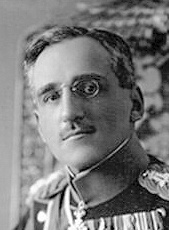
Unfortunately for King Alexander I Karađorđević, his list of enemies was quite long and they were more than happy to take him up on his offer. By the fall of 1934 he would be dead, assassinated by a terrorist working simultaneously with two different nationalist groups and holding the dubious honor of being the first political assassination to ever be filmed.
The Kingdom of Yugoslavia was in dire straits before Alexander’s assassination. It had come together as the Kingdom of Serbs, Croats, and Slovenes just before the end of World War I as Croatia scrambled for a way to disassociate itself with the utterly defeated and dismembered Austro-Hungarian Empire. Pushing the Balkan nations of Serbia, Bosnia and Herzegovina, Croatia, Slovenia, and later Montenegro together into one conglomerate Balkan state suited the men crafting a post-war peace, even as Alexander himself was wary. In English he was heard to say, “[We are] fighting for Yugoslav unity in a Yugoslav state.” In Serbian, however, his words had an entirely different meaning, “[We are] fighting for the re-establishment of Serbia, our dear homeland.”
Whatever linguistic arguments are made about naš jezik, the languages are mutually intelligible and virtually indistinguishable outside of the Balkans and Balkan experts. It wasn’t only Serbians hearing about re-establishing Serbia, and it created seeds of worry in the non-Serbian population of the newly established kingdom.
The idea of a Kingdom of Southern Slavs appealed to Alexander, no matter his hesitations. Educated at the Imperial Page Corps in Saint Petersburg and an honored guest at the Romanov’s banquets, the Serbian prince was an avowed Russophile. It was no accident that the Karađorđević family regained the Serbian throne upon the assassination of King Aleksander Obrenović of Serbia and his wife Draga Mašlin in 1903 – the Russian government had been willingly mired in both sides of that particular conspiracy and happily sent the Karađorđević princes home to Serbia, secure in the knowledge that they had cemented multiple generations of a pan-Slavic union.
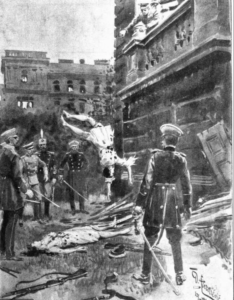
In fact, Alexander continued correspondence with the Grand Duchess Tatiana after returning to Serbia, with many reports that he hoped to marry her after the war. It was not to be – the Russian royal family would be executed at Yekaterinburg in 1918, and by all accounts Alexander was devastated.
Post World War I proved to be just as contentious as the decade before. None of the nationalities in the new kingdom trusted the others, and Italy was a thorn in Alexander’s side as it continuously tried to claim parts of Croatia and Slovenia. The King was sure that a showdown with the fascist dictator of Italy would be forthcoming, and began to look to France for help and support, which France readily gave… in the beginning. But as 1926 came and went, even more internal threats began to tear at the Kingdom of Serbs, Croats, and Slovenes. Svetazar Pribićević, a Serb leading the Independent Democrat Party, and Stjepan Radić of the Croat Peasant Party began agitating openly against King Alexander; demanding that the Serb focus of the Kingdom be transformed into something more inclusive of all Southern Slav nationalities. Radić was even referred to by some as “the Uncrowned King of Croatia.”
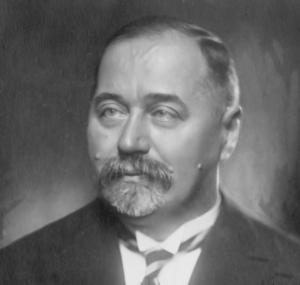
Common sense dictates that a ruling king will probably not take kindly to anyone referred to as an “uncrowned king” in his territories.
On 20 June 1928, Stjepan Radić was warned not to attend parliament, but announced he had a duty to go. A violent argument was started by the Montenegrin Puniša Račić of the People’s Radical Party and insults began to fly. The argument came to a crescendo and when the smoke cleared two Croatian parliamentarians were dead and Stjepan Radić was mortally wounded. He would die in August of his July 20 wounds.
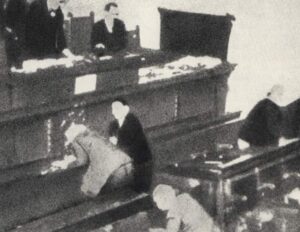
The shootings confirmed everything that non-Serbs feared about the Kingdom and riots immediately broke out in Zagreb, resulting in at least five deaths.
Although Račić only received a slap on the wrist (20 years of house arrest, with servants and the ability to come and go), he did not get away with his crime. When the Partizans came through Belgrade in 1944, he was one of those executed for war crimes against Yugoslavs.
Alexander I needed to act in the wake of the rising violence and anger, so on 6 January 1929 he abolished the constitution and created the January 6 Dictatorship. He purged the government of 1/3 of its bureaucracy, citing rampant corruption amongst the ranks. He changed the name of the nation to The Kingdom of Yugoslavia, emphasizing a collective of Southern Slavs. He outlawed parties based on nationality, religion, or regional affiliations. He started reforms of the legal and taxation systems, to make uniform rules and payments throughout the kingdom. He also divided the nation into 9 banovines; but he did not adhere to historical boundaries as he did so.
Of the nine banovines, only two were Croat-majority. One was a Slovene majority. And the Bosniak Muslims were a minority in every region. Every ethnicity in the Kingdom of Yugoslavia saw Alexander’s reforms as merely creating more opportunities for Serb domination, and the seething anger began to metastasize. More people were driven to join a Croatian organization called the Ustaša, which demanded Croat independence and advocated violence to bring independence about.
By 1931 the Ustaša was detonating bombs. They were also recruiting heavily, including a Bulgarian man in his thirties who had started off his life as a terrorist in the Macedonian group IMRO before taking his skills to the Ustaša. Vlado Chernozemski was known as “the Bulgarian Chauffeur”, and he was an expert marksman and assassin who murdered two high level IMRO members during political infighting. He was also so mysterious that even his second wife did not know his real name or anything about his past.
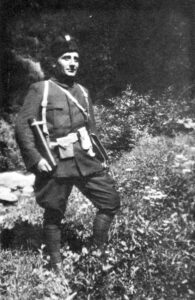
Alexander was still trying desperately to hold is fragmenting kingdom together. In 1931 he introduced a new constitution that gave him executive powers, but it was too little, too late.
Alexander, seeing the dangers, began to withdraw from public appearances for reasons of safety, which created the appearance of distance and disdain to the Yugoslav people. Resentment continued to grow, and acts of terror became commonplace.
On 6 September 1932, a group of Ustaša attacked a police station near Gospić. No police were killed, but the Velabit Uprising proved that the Ustaša were not afraid to use the most violent means necessary against the government.
By 1933, France understood that Yugoslavia was on the verge of civil war. They warned Alexander about his fracturing nation, and pointed out the ascendence of Adolf Hitler in Germany, which seemed likely to abrogate the Treaty of Versailles. France needed the Kingdom of Yugoslavia to be a strong ally, not a roiling mass of internal strife. They urged Alexander to give more freedoms and institute federalism in his kingdom.
Alexander needed to keep his treaty with France intact, and the French Minister of Foreign Affairs Louis Barthou was sympathetic. The two arranged a meeting in Marseilles on 9 October 1934.
Training in Hungary with fake Czech passports, Chernozemski and his three assassins saw their chance.
As Alexander and Barthou made their way slowly down the street in their open-topped car, the crowd screaming in support of Alexander I of Yugoslavia, Chernozemski pushed through the crowd, jumped on the running board, and fired several times. It was all caught on film, the first political assassination recorded as it happened, although the moment of the shooting is not visible.
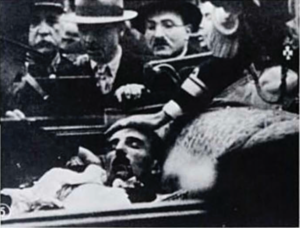
Alexander died on the scene, as did his driver. Barthou was killed by a stray bullet fired by a police officer at Chernozemski.
Another mounted police officer quickly slashed at the assassin with his saber, dropping him to the ground where the crowd surrounded him and beat him so severely that he died of his wounds that night and was completely unrecognizable save for his IMRO tattoo. The French police had no idea who he was, just that he had assassinated a king and their foreign minister on French soil.
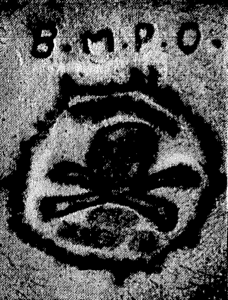
His identity was finally uncovered when his associates were arrested and gave everything up during questioning.
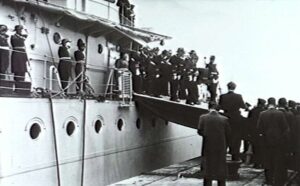
Alexander’s legacy is not an easy one. In the end, he was unable to keep his kingdom of southern Slavs working together or any sort of harmony. It is entirely likely that a great deal of the nation’s problems were exacerbated by the Great Depression, and it is worth pointing out that the strife of The Kingdom of Yugoslavia was not unheard of in other places – there was just more of it. The Kingdom of Yugoslavia would enter World War II a fractured nation led by a regent for a child. Those fractures would never completely heal, and would erupt along the national fault lines yet again fifty years later.
In hindsight, maybe the problems of the southern Slavs weren’t caused by Alexander at all.
- September 18, 2020
- Serbia

